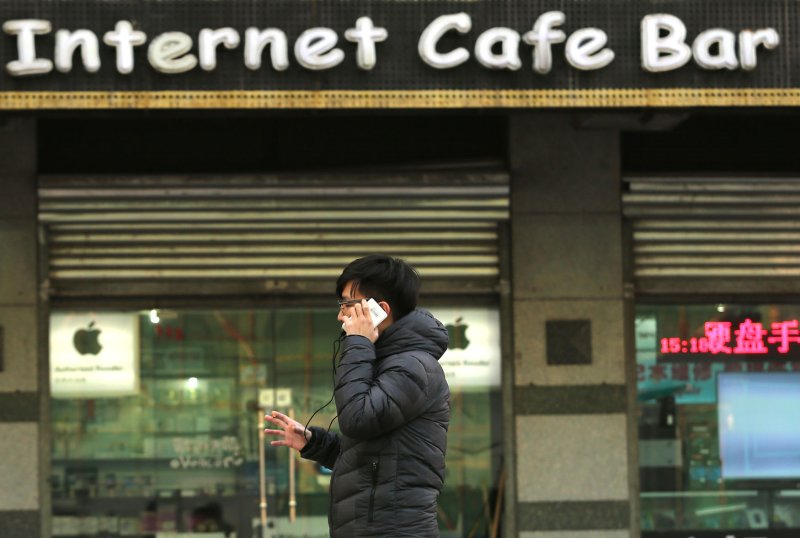A Chinese man talks on his phone outside an internet cafe in Beijing on January 20, 2016. China has the world's largest internet market with more than 700 million people online, but Asia accounts for more than 60 percent of the world's population without internet access, according to a U.N. report. File Photo by Stephen Shaver/UPI |
License Photo
Sept. 18 (UPI) -- More than half of the world's population still does not have access to internet, with Asia and Africa having the lowest rates of access, according to a United Nation report.
Of the 7.6 billion people in the world, 3.58 billion, or 48 percent, are using the internet. But that's a significant jump from 2016, when 3.4 billion people or 45.9 percent of the world's population were estimated to be online, the U.N. report stated.
Europe has the world's highest rate of connectivity, with nearly 80 percent of people online, while Africa had the lowest percentage of internet user penetration, with only 21.8 percent of the population having internet access. But Asia had the highest percentage of people without access, making up 62 percent of all people in the world not online.
"Large gaps in connectivity persist, mainly due to the lack of infrastructure, affordability, lack of skills or lack of relevant content" are some of the reasons for low connectivity rates, the report said.
However, although Asia has most of the world's offline population, China is the world's largest internet market with more than 700 million people. And India is second, with more than 355 million internet users.
With developing countries are far behind developed nations in internet access, there is additional gender gap that demonstrates inequality when it comes to the internet.
"Disparities in gender access are largest in developing countries, especially in Africa," the report states. "The Economist Intelligence Unit Index reveals that only 11.6 percent of women access the Internet in Africa, while 88 percent of them access the internet in Europe."















